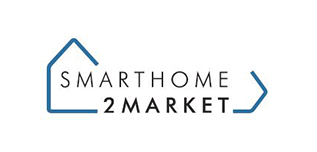Projects
Following projects were chosen for a sponsorship by the Federal Ministry of Economics and Energy within the scope of "Smart Home"
ProSHAPE
Hardware and software solutions for flexible energy supply and minimised costs
Brief description
In a distributed energy management system, ProSHAPE uses household-based data on current and forecast energy consumption in order to co-ordinate energy generation in the building through distributed cogeneration and/or the sale or purchase of energy. Using dynamic, price-based weighing, the entire energy system in the smart home network can be optimised with a view to heat and electricity use.
The challenge
Distributed cogeneration and the offer of variable electricity and gas prices mean that the structure and tasks of distributed energy management systems have to change. Up to now and thanks to constant energy prices, their primary task has been to minimise heating energy consumption. In future, however, buildings with energy generation and storage systems are to be integrated into distributed, future-enabled energy supply. With variable gas and electricity prices, heat and electricity costs are to be reduced and the information from the buildings is to be used for more flexible and distributed energy supply (e.g. as part of virtual power plants). In the case of grid bottlenecks, building management will help to stabilise the grid by integrating the connected power generation and conversion systems. The economies of scale in multi-storey apartment buildings will lead to potential savings in heat and electricity that have not been exploited up to now. Based on this, heating and electricity costs in multi-storey apartment buildings can be minimised for consumers and carbon emissions reduced.
Aim
In the ProSHAPE project, the existing home network platform from the predecessor SHAPE project is to be supplemented by functions that enable price-based, flexible and energy-efficient optimisation of heat and electricity supply in multi-storey apartment buildings. This project is to primarily address the housing and energy sector as a partner and service provider in the new business field of building and home networking. The development of corresponding business and billing models is key to this.
Technologies
Based on the preparatory work carried out in the predecessor project, other components are to be integrated into the energy management system. First of all, power from mini power plants is to be integrated to generate electricity/heat. Depending on demand, additional energy will be purchased from the supplier or excess electricity can be sold and fed into the upstream electricity grid. In addition, systems are to be included for controlled ventilation which will need power for the fans installed. In order to reconcile the variable prices for gas, electricity and reselling energy from mini power plants into the distribution grid, the energy management system is to be expanded to include agent-based, value-added services in order to optimise overall costs. Operator and business models will be developed for these services. Furthermore, a cost-to-benefit analysis will be drawn up for a national smart-meter rollout. This will be used as a basis for business models for so-called smart-meter solutions for remote consumption metering and transmission of price information.
Use case
The hardware and software systems developed are to undergo field testing with partners from the housing and energy sectors.
Partners: Borderstep Institut gemeinnützige GmbH (project leader), DAI-Labor (TU Berlin), Dr. Riedel Automatisierungstechnik GmbH, Gebäude- und Wohnungsverwaltung GmbH, Orga Systems GmbH, Vattenfall Europe Innovation GmbH
- Recommend this page:
- Print view
